Mr. Copeland
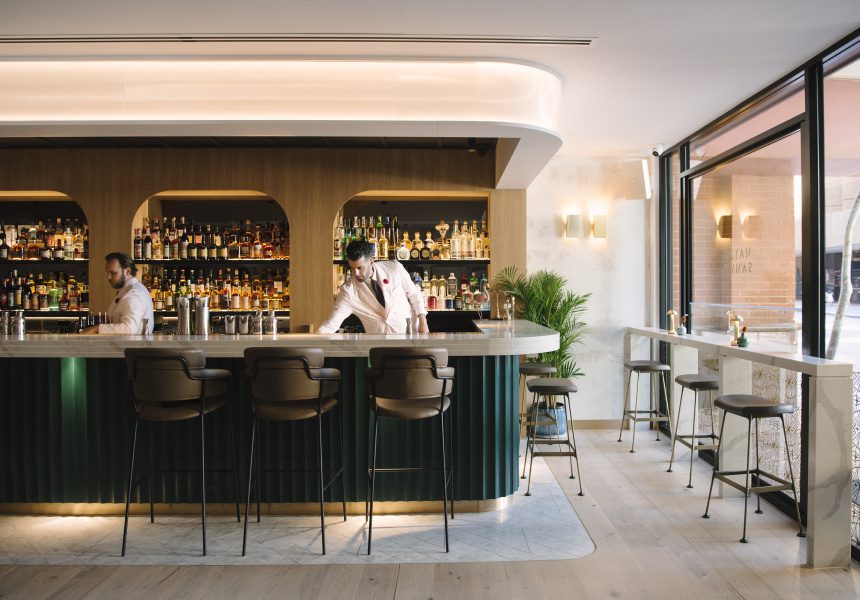
The Bistro District and Downtown.
I pulled under the covered entryway at the Vacation Motor Inn to surprise Leon and Carol and they came running out of the office squealing and applauding like I was a fifteen-year-old who’d just passed his driver’s test. Clapping me on the back, shaking my hand, and saying “congratulations!” and, “you did it!” And, to be totally honest, I was excited too. Having “the Canary,” which is what I’d christened the car on the drive down Southwest, meant I’d be able to explore more of Nowhere, perhaps go to the drive-in movie, even invite a girl on a date. All the same reasons a fifteen-year-old is happy to have his driving license.
But it turned out to be another two weeks, well into March, before I really got the Canary out and about town. I was trapped into my routine and had trouble breaking it. I liked the idea of going out. I thought about it. I planned it. I got dressed and put the keys in my pocket and stood by the door. Almost always I talked myself out of it. I did take the car to the Nowhere Library, to the grocery store (there was a kitchenette in the room,) and to the liquor store. I ordered a bottle of really good bourbon sent to the elevator operator at Kenton’s Department Store. My tux and the rest of my purchases were delivered, and I tried them on and even thought about wearing the tux one night to the Brick, but again I talked myself out of it.
One night John Lee Danner came by my room. I intended to stay in and write that night, or drink and write, but John Lee asked if I would come with him to the Brick and drink with him. “C’mon, Ken. I want to talk with you.”
I told him I would not go to the Brick. I was burnt out on it for now and I hadn’t seen Kate there since the night I’d turned her down about going to the movies. But if he’d ride with me to the Bistro District I wanted to see the area at night and try some of the famous Nowhere cafés that also served drinks until midnight.
I dressed in my gray suit with a blue tie and we drove over in the Canary with the top down since the night was beautiful. The parking in the Bistro District was in the middle of the street, so we parked and walked first to the Los Alamos Café, which was open and had a buzzing and happy clientele, eating and drinking dessert drinks and aperitifs on its patio. Streetlights low-hummed and arched from cast iron poles illuminating the district with a warm yellow-orange glow and what were made to look like paper lanterns hung from wires across the street giving the whole scene a welcoming feel.
We sat at a small table along an iron railing and the table commanded a good view of both the café and the whole length of the district. Friends and lovers strolled, some hand-in-hand, along the café-lined sidewalks, sipping drinks, and some looking up at the sliver of moon visible above the rooftops. The café vibrated with energy and what I could only conceive of at that moment as “good vibes.” There was conversation and laughter, not the uproarious type, but the pleasant titter of people having a good time. A live jazz band played somewhere, and the happy sound reverberated down the street, a hot number I recognized as Christopher Columbus by Benny Goodman’s Orchestra. The sharp, sweet ring of the trumpet, like a bullet hitting a bell, was familiar and I remembered it as the man, ‘good as Harry James’ that was playing along with Kate the night I met her. Somewhere in my subconscious an idea percolated that Kate might be wherever that jazz was coming from, but that idea didn’t climb into my consciousness until later.
We ordered a bottle of Kentucky bourbon and John Lee ordered a rare steak, assuming, I supposed, the kitchen was still open, which it was. I didn’t order any food but poured myself a heavy bourbon and the waiter brought an ice bucket with small tongs and normally I won’t ice my bourbon, but it seemed appropriate because for March it was a nice, warm night. I dropped a big square chunk into the golden liquid and swirled it until condensation appeared on the glass. The scent of moist soil from wetted pots, lily of the valley, rosemary, and cigarette smoke floated on desert air as a delicate breeze danced lightly down the street and through the crowd. This café didn’t have free cigarettes like the Brick did, so I ordered Chesterfields from the waiter, and he brought them with a pack of matches and a small plate of mints, nuts, and candies. I lit the cigarette and noticed that John Lee was in the same pleasant reverie. He’d added a chunk of ice to his bourbon too and he was smelling the whiskey, inhaling deeply, and his eyes darted lively around the place and I knew he was eager to identify for me some of the patrons and his favorite gossip, but he restrained himself in honor of the peaceful spirit of the moment.
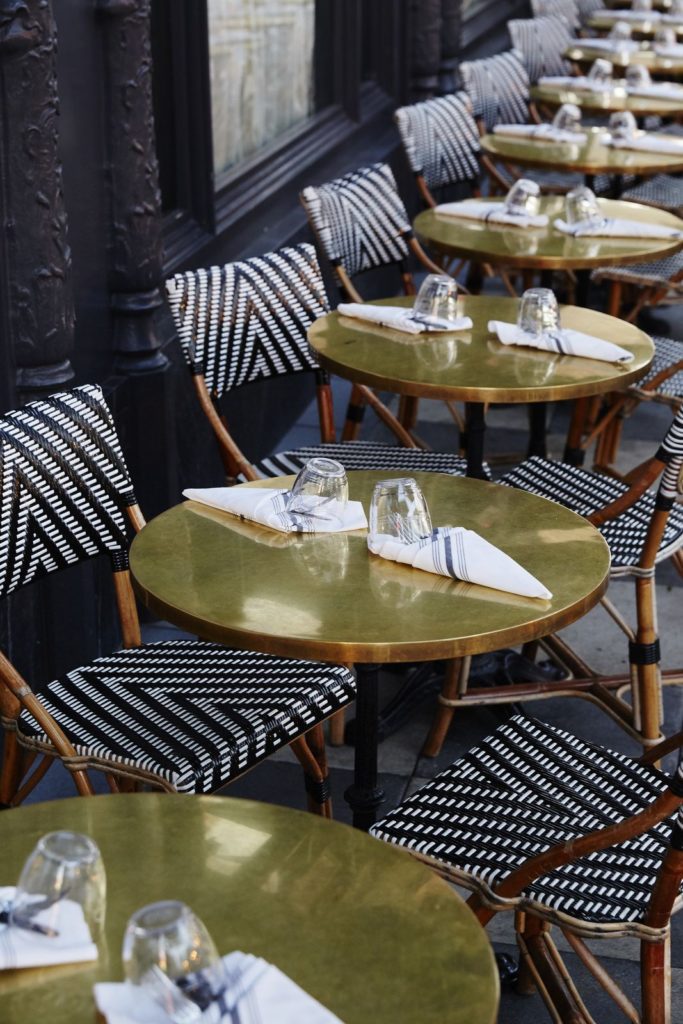
“This is nice,” he said, unnecessarily, and I smiled.
“You should eat,” he said. “Don’t worry about the bill here, if you are. This night is on me.”
“Oh no,” I said. “I have an expense account and there is a certain pleasure charging drinks and cigarettes to Edward Kramer Thompson, Pontifex Maximus of New York City, so let me pay.”
John Lee laughed. “Well, this is awkward because I don’t like to talk about myself, but I own this café and a number of other similar operations in this town, so clearly you see that I cannot allow my guest to be handed a bill no matter how much he insists. It is a matter of staff respect and order, you understand. It has nothing to do with you.”
I was surprised and wasn’t sure how to respond. Then, “But you wanted to drink at the Brick and I brought you here.”
“I like to dine at The Brick because in that way I support a fellow entrepreneur and frankly I identify more with that crowd as my tribe, if you know what I mean.”
“Well, I’m sorry I dragged you here,” I said.
“All the better for me, since I get to show you my vast achievements in the culinary and beverage industry. As I said, I own quite a few restaurants, cafés, and saloons in town. Also, I would not have allowed you to pay at the Brick since I invited you and have an arrangement with Leon and Carol and this way I get to wine and dine you at cost, which is a great benefit to my bottom line. It is a business expense, you see.”
I didn’t answer for a few beats, and perhaps my eyes narrowed a fraction.
John Lee laughed again. “This isn’t a date, cowboy. You aren’t my type.”
I lifted my drink and we clinked glasses in a toast. “I thank you, then,” I said. “And I’ll make sure to drink enough that you’ll notice.”
“We have the finest whiskeys in the state,” John Lee said. “Inarguably. I insist on it. I even carry the swill that isn’t from my dear home state of Kentucky.”
“Very cosmopolitan of you.”
“And perhaps,” John Lee said, more seriously now, “if I cannot convince you not to write about our fair town, you’ll give a plug to my establishments. I mean, if I can’t retire in absolute peace and anonymity, I can at least profit from the notoriety.”
I finished my drink and poured another one, dropping a smaller chunk of ice into it this time. “It seems that, at least among the few residents I have gotten to know, that people would rather I wasn’t here, or, at the very least, that I wouldn’t write about Nowhere.”
John Lee’s head tilted slightly. “You mustn’t think that we don’t want you here. That isn’t even remotely true. But it is true that we would prefer you didn’t take up our town as a topic for national discussion. We like things the way they are.”
“What if it’s a light puff-piece? What harm can it do?”
John Lee topped off his glass and as he prepared to answer me, his steak arrived, fully covering his plate such that his sides of a baked potato and some steamed vegetables dripping in garlic butter were brought on a smaller plate. Danner thanked the waiter and told him to commend the chef, and as the waiter turned to withdraw, John Lee stopped him with a touch and asked him to bring a glass of cabernet. He pointed at me to see if I wanted wine, but I was happy with the bourbon and shook my head. There was silence for a few minutes as he cut into his steak.
“Ezra Pound said, ‘It is impossible to talk about perfection without getting yourself very much disliked.’ I take it that this is the topic of your article? This foolish notion that Nowhere is a perfect town? Clearly it isn’t. Not with a fairy like me in it.”
“I don’t think perfection has only one definition,” I said. “And that part doesn’t need to be a part of any article. I don’t find it relevant.”
“You must know that Death and life are in the power of the pen,” John Lee said.
“That’s the tongue. Death and life are in the power of the tongue.”
“The pen is just the tongue writ large, far, and wide.”
“To not say what I need to say, for a writer, is death.”
“Sometimes to say it is to kill.”
I downed my drink. “Explain.”
“This steak is delicious,” John Lee said. “You must order one. Or at least try a bite of mine.”
“I eat late when I’m writing.”
“Let’s look at all the possibilities. I don’t presume to know the angle of your article. Is it a genesis story? Why are we here? How did this happen? Or is it a ‘puff-piece’ as you say. I don’t believe that for a moment, but let’s say it is. You are a very well-known writer. And you write in the most popular magazine in America. In the entire world some would say. If it is negative, perhaps you damage the very unique ecosystem, the life support, that has allowed this special place to exist. Maybe folks here believe you, and what would that do? How much does it cost to build goodwill and love for our fellow man? What happens when that spirit is damaged?
“Or if your article is positive and the whole world finds out that this little Eden exists?” He shook his head. “America is on the precipice of major changes. So is the world. People are nostalgic. They’re looking for a paradise. Look what’s happening in Las Vegas. In Hollywood. South Florida. The south of France. The mafia, crime, and crass commercial tourism. Route 66? The mass finds paradise and makes it an ashtray.
“People are flocking to every paradise in droves. They have automobiles now, and airplanes, and thank God we’re not on a train line, but there are even worse things that can happen.”
“Worse?”
“This is the time of darkness my friend. I’m not telling you something you don’t know.”
The waiter came by with John Lee’s wine and swapped my drink for a fresh one. This one I sipped straight, without the ice.
“There was a time,” John Lee said, “when man worshipped the volcano as a god. Maybe not as the God himself, but as a portal to him or a representation of him. Superstitious man with great ceremony threw whatever he thought was good and pure into its fiery maw in order to satisfy what he saw as a god, whose wrath was raging and uncontrollable and could only be quenched by sacrifice. Virgins. Ponies. Your neighbor. That’s ancient man, mind you. Modern man has made the A-bomb. A portable volcano. It can be carried to your doorstep on the wings of a plane. Hellfire can now be unleashed by politicians, the worst dregs of humanity most of them, the modern priests who cannot abide perfection. We sacrifice to the A-bomb by cowering in fear to the priests holding its power, the people who live far away and who have bomb shelters and bunkers. We sacrifice to it by submitting to every outrage and caprice of those who claim some kind of paternal care over us. In any case, man destroys what he cannot have.”
“You’ve lost me,” I said. “This lesson started out with me unleashing hordes of paradise seekers on Nowhere, and now I’m calling in A-bombs by death priests.”
“Then I haven’t lost you. You understand me perfectly.”
“That sounds a bit hysterical.”
“At any particular moment, my sanity is questionable. That aside, what is required for a paradise to stay a paradise,” John Lee said, “is, first, for the people to believe wholeheartedly in its goodness. To never doubt that it is good when they know it is so by experience. Not to pretend that it is good when it is not, but to know it is good when it is. This is not a theological declaration. It is not perfect (how many times must we say that?) but it is good in that people are free to be happy and not coerced to live in misery for the benefit of the political priests.
“Second, they need to know that the goodness is relative. While the earthly paradise is not perfect, never has been and never will be, it is better than everywhere else… to them.
“Third, we know that when people, outsiders, hear of a paradise and hunger for anything better than what they have, they will want to leave where they are to go there. But for it to stay a paradise these people must be educated about its attributes, or they will ruin it.”
I was writing all of this in a notebook and John Lee paused to let me catch up. He wanted me to know this.
John Lee smiled and then waved his hand like he was dismissing the whole conversation. “Poetry is insane, and so is modern man. And so am I when I am getting drunk.”
“No,” I said.
He laughed. “I am a drunk poet and I am coercing my own guest in my own establishment. Hypocrisy! But I must tell you that this steak is marvelous!”
“I get that you’re afraid things might change because of something I might write. Abe Mendoza called it the observer effect. But anything I could say or could not say isn’t going to change the inevitable. If this place is a perfect heaven on earth or if it isn’t, it can’t hide forever. Change is going to come.”
“Perhaps,” John Lee said with a smile. “Still, you could change the name to protect the innocent. Put it in Arizona. Call it Somewhere, Arizona.”
***
I finally met the mysterious benefactor Mr. Copeland an hour later a few doors down at Las Lunas Cantina, the restaurant and ballroom from which the live music emanated.
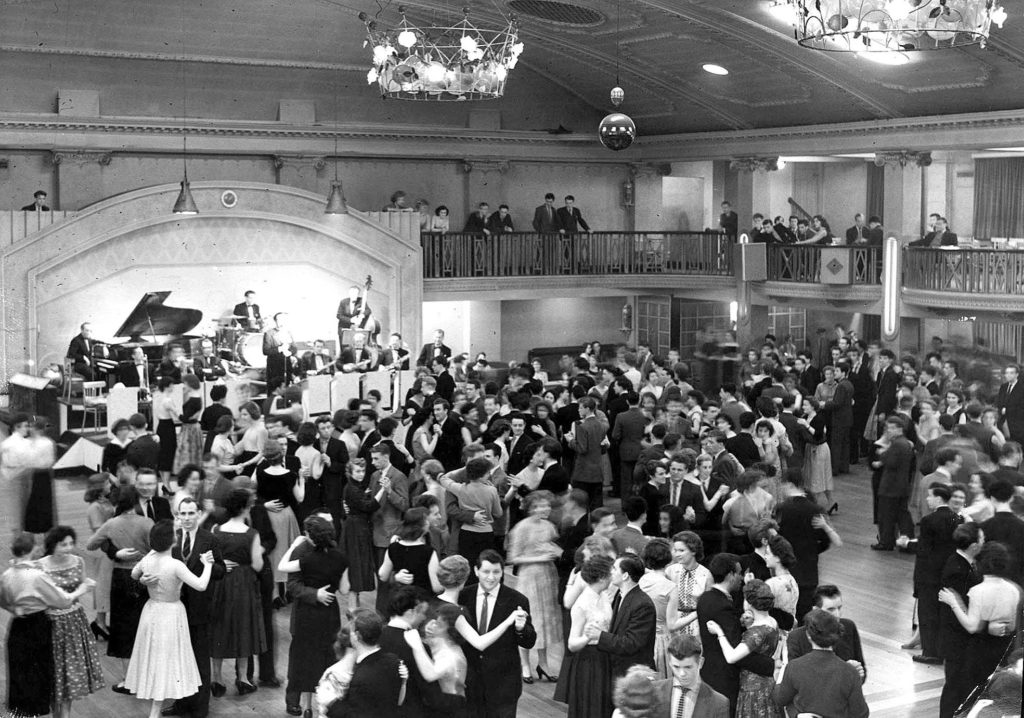
John Lee whispered to the maître d’, a man he called Jack, and we were escorted through the thick crowd to a table in a reserved section of the restaurant with a commanding view of the sunken dance floor and bandstand. The band, all of twelve members including a pianist, was well into the strains of Blue Orchids, a famous Tommy Dorsey song, and couples moved smoothly around the dance floor. The trumpetist, who was also the bandleader—the one I remembered who played like Harry James—sang the solo when the time came. I remembered that Leon told me that John Lee, in his former life, had been with Tommy Dorsey after Sinatra left to go become a superstar and I wondered if hearing the old songs had an effect on him. From the look on his face, it did not.
I was captivated by the scene and tried to capture it in my memory like a motion picture. Like in one of those golden moments when the music swells and the camera pans the ballroom, or one of those halcyon moments of absolute clarity, when the night and its energy takes you and your heart rings in harmony with the music. I lit a Chesterfield and had barely returned my lighter to my pocket when a waiter arrived with drinks, martinis this time.
“You own this place too?” I asked.
“I tend to collect things.”
“This is turning into a cheap night for me,” I said as I took a drag on the cigarette.
John Lee put his hands up in mock surrender. “No agenda here. I said what I wanted to say. My main goal is for you to enjoy all the elements of our hospitality.”
I tasted the martini. Dry and perfect and I saw a face through the crowd, but didn’t identify it immediately, but my breath caught in my chest.
“Leon told me you were a famous singer out in the other world.”
John Lee nodded. “I don’t prefer to talk about myself.”
“Gotta get it right for the article,” I said with a smile. “You know I can find out.”
“I did have another life, not relevant to this one, wherein I was a singer of some note. But that life is behind me. Mostly.”
“Ok.”
“I sing,” John Lee said, “when I want to, and when I feel comfortable.”
“Fair enough.”
We were silent for a few minutes as we sipped our drinks and watched the band, which was very good. They went into a Benny Goodman song, but I couldn’t remember the name of it. The dancefloor hummed with energy and the swirl of activity looked almost choreographed it was so perfect. I swallowed the rest of my drink and excused myself to go to the men’s room and before I could even push my chair back John Lee had smoothly waved to the waiter and gestured to bring us another round while simultaneously pointing me to the right where there was a hallway leading to restrooms.
The crowd split as I walked and I noticed people watching me, and I received approving looks from some of the women and some head nods of greeting from the men. I had the feeling that my residence in town had been noted and perhaps was the topic of some conversation.
There were dark wood phonebooths along the hallway and I found the men’s room toward the end of the hall. I had not considered the telephone before, although there was a telephone in my room that I used often to order room service or to tell Leon or Carol when I wanted my room to be cleaned, but now I was thinking that I couldn’t remember seeing any telephone lines on the way into town, or anywhere else in town, though it is possible that I just didn’t register that I saw them. I thought about placing a collect call to Edward Kramer Thompson right then, but I didn’t want to have a conversation about the car I’d bought quite yet.
A restroom attendant held the door for me then returned to his place between two lavish sinks, and after I had used the urinal, he, with white-gloved hands, turned on the water and was ready with a towel to dry my hands. There was a collection of men’s colognes there, which the attendant offered to me, but I declined. I reached into my pocket and pulled out a dollar, which was probably too large an amount for a tip and I didn’t have any change, but the attendant shook his head in refusal and smiled. “Mr. Danner takes good care of us,” and he offered me a mint from a small tin. When I refused, the tin went back into his pocket and he began to wipe down the basin I’d used with the towel which he then threw into a basket.
Walking back toward our table I heard the bandleader go into a hot Harry James number, and I felt a hand slide in under my arm and begin to pull me toward the dancefloor and I saw that it was Lucy Kenton, full red pouting lips in a possibly inappropriate white dress showing a whole lot of Lucy Kenton and I let myself be pulled along and she put my arms around her, which I allowed, more out of necessity than out of any real desire to dance, and we moved together well enough that I had the opportunity to see more of the cantina and the crowd assembled on and near the dancefloor. The song ended and a slower piece started, You Made Me Love You (I Didn’t Wanna Do It,) and I felt a hand tapping me on the shoulder to cut in, and I looked and it was a nice looking older man who smiled and said “May I?” I smiled and said “Certainly,” turned to Lucy who looked disappointed and her lips got even more pouty as I stepped away in retreat. Just then, I felt another hand slide in under my arm, and this time when I looked it was Kate Laird, and she moved into my arms and we began to move together as if we’d done it before.
“Thank Mr. Copeland later,” Kate said.
“I will never be able to repay him.”
“I’m still not speaking to you, Mr. Halberson.”
“It sounds like you’re speaking to me.”
“Regardless. I am not.”
We danced a full turn around the floor.
“Are you still not talking to me?”
“I still am not,” she said.
“May I ask why?”
She stopped dancing and broke the embrace that I was enjoying more than just about anything I’d ever enjoyed before.
“I asked you on a date and you refused me!” She said with her voice in a low whisper so as not to make a scene. I took her hand and walked her off the dance floor.
“That was a date? An impromptu invitation to go to the movies with you and your friend?”
She crossed her arms. “You could have gone with me and we could have talked and gotten to know one another. Instead, you turned me down flat. My feelings were hurt.”
“I apologize. I have no excuse.”
“You do? Apologize?”
“I do.”
“Ok, then.” She took my hand and led me back on the dance floor. She fell back into my arms and I’ve never danced that well or that happily in all my life and my leg didn’t hurt and I didn’t limp.
***
Copeland came to their table and Halberson finally got to meet the mysterious man who seemed to have so much to do with everything that happened in Nowhere.
“I suppose I owe you thanks for… well, for just about everything,” Ken said. “You paid Abe Mendoza for my ride here, and you’ve arranged so much of this on the sly, and you just saved me from Lucy. So much that I feel like I should be thanking you profusely and engaging in an inquisition to find out why and what this is all about.”
Kate excused herself. “I’ll go powder my nose. You gentlemen talk and I’ll be back around a little later.”
A waiter delivered more martinis and Ken lit a Chesterfield as Copeland explained that when he heard that LIFE was sending a journalist, that he felt it was his duty as the town’s biggest cheerleader to make certain that Nowhere’s guest enjoyed the full complement of the town’s hospitality.
“How did you hear that LIFE was sending a journalist?” Ken asked.
Copeland asked if he could have a cigarette, and Ken held the pack out to him.
“I usually don’t smoke, but it seems appropriate. I don’t know why. Anyway, I know people from my former life who know things. Who hear things. It came up in a conversation that LIFE might be sending out a reporter, so I did what due diligence I could to find out when you might be arriving in Albuquerque. I arranged for our mutual friend Abe to be working so he could retrieve you. Abe is very good at sizing up people. A great judge of character. He’s a great man himself, and he knows good men. His job was to see what sort of man you are. Abe has an affinity for our town and doesn’t want to see any harm come to it. He listened to you and tried to determine if you are a good man or a bad man.”
“That seems like a simplistic way to make that kind of determination, Mr. Copeland. And probably unfair to people who make bad first impressions.”
“Abe has good instincts. He trusted you, so we trust you.”
Halberson puffed on his cigarette. “And what would have happened if I had failed the Abe test?”
Copeland smiled a kind smile. “You would almost certainly have never found this town. No one would have shown you here. Eventually you would have gotten back on your airplane and you would have flown back to New York only to tell Mr. Thompson that the existence of Nowhere, New Mexico is a complete myth.”
“So,” Ken said, “I’m a good man but a bad journalist? You don’t think I might have found this place otherwise?”
I looked over to John Lee, who sat silently and sipped on his martini. He shrugged when he saw me looking at him.
“Perhaps you would have,” Copeland said. I meant no insult.”
“I have so many questions.”
John Lee pushed away from the table and excused himself with a smile.
Ken took one of the martinis from the tray and ate one of the olives before downing the drink all at once.
“You have to know that as a journalist this kind of mysterious behavior only intensifies my curiosity. You could perhaps be the nicest person in the history of the world or a Hitchcockian villain who controls this town with an iron fist.”
Copeland laughed. “I could see that. I suppose it is common to assume that there is some pernicious agenda at work. And I’m sure that Mr. Danner has tried to persuade you not to write your story. As for me, I just encourage you to hang around awhile. Do your job. But also ask yourself if by observing this experiment and then opening it up to the world you can negatively affect its outcome. Just an honest request from me to you… that you’ll think about it.”
“Alright,” Ken said, “I will. Now, I should go directly to the horse’s mouth. Which origin story about Nowhere is true? What should I believe?”
Copeland smiled. “Gold, Mr. Halberson. Lew Bonaventure found lots of it.”
Ken wrote that down on a cocktail napkin and thrust it into his coat pocket, and as he did, he noticed that Copeland’s eyes had wandered and now he was staring at the bandstand.
“Oh my word,” Copeland said as a smile grew on his face. “You’re in for a treat.”
Ken looked and there was John Lee Danner standing on the bandstand, holding the microphone in one hand and the other was deep in his pocket. The bandleader counted them in, and the band went into the catchy opening notes of I’ll Get By. When John Lee started singing, Ken recognized his voice instantly. He’d heard that voice coming through his radio so many times it was like an old friend calling to him.
I’ll get by
As long as I have you…
“Dick Hager,” Ken said, his voice almost shaky in bewilderment. “That’s Dick Hager.”
“In the flesh,” Copeland said.
John Lee Danner/Dick Hager sang the song and he had the audience transfixed and when he finished the crowd clapped and screamed for more, but he just smiled and thanked everyone before leaving the bandstand.
“Well, I’ll be,” Ken said.
“Not all mysteries are bad or nefarious, Mr. Halberson. Sometimes people just like their little secrets.”
“Yet, I’m not supposed to write about this? That Dick Hager, a superstar crooner from the 1940s, who disappeared from public life altogether, is living under an assumed name in a secret town in New Mexico?”
“Well, all I can say Mr. Halberson is that we’re all happy that you’re here. This town seems to have embraced you wholeheartedly. Most paradises get worse when you actually look into them. This one just gets better and better. Please do enjoy it.”
Just then, the music started up again and I looked up to see if John Lee had returned but now it Kate was on the platform holding the microphone. She began singing It’s Been a Long, Long Time, a song made famous by Kitty Kallen who sang it with the Harry James Orchestra. Her eyes were on Ken.
Never thought that you would be
standing here so close to me
there’s so much I feel that I should say
but words can wait until some other day
Ken Halberson’s heart caught in his chest. Her voice was purely angelic. He was transfixed.
Kiss me once, then kiss me twice
Then kiss me once again
It’s been a long, long time
Haven’t felt like this, my dear
Since I can’t remember when
It’s been a long, long time
You’ll never know how many dreams
I’ve dreamed about you
Or just how empty they all seemed without you
So, kiss me once, then kiss me twice
Then kiss me once again
It’s been a long, long time
When the song was over the crowd and cheered and applauded raucously, Ken more than them all. Kate, looking embarrassed and happy at the response, muttered a timid ‘Thank you’ and handed the microphone back to the bandleader, who was still clapping.
When she returned to the table, Ken rose to help her into her chair. He leaned over and whispered into her ear, “That was wonderful.”
“Thank you,” she said, smiling.
“That’ll be our song.”
“We don’t have a song yet, Mr. Halberson,” Kate said with a wink. “You still haven’t made up for your previous failure.”
“What must I do?
“If your better instincts don’t take over, then there is no hope for you.”
“Should I kiss you once, or kiss you twice?” He asked.
“Not your baser instincts, Mr. Halberson. Your higher ones.”
“Invite you to church, then?”
Kate laughed. “Somewhere in between there would be nice.”
Downloads
PDF Version
Mobi Version
ePub Version
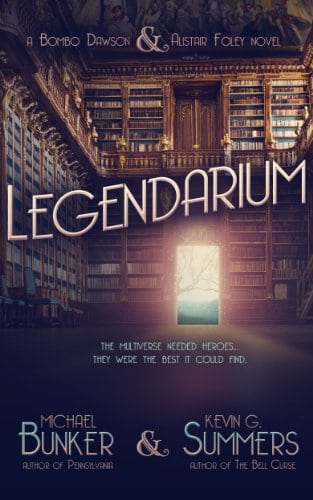
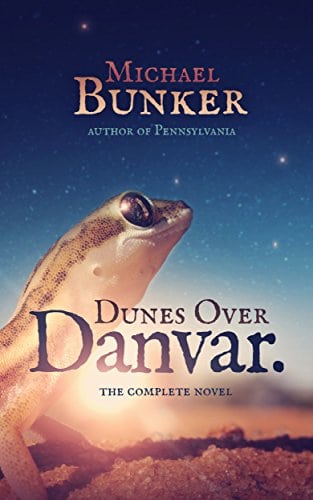
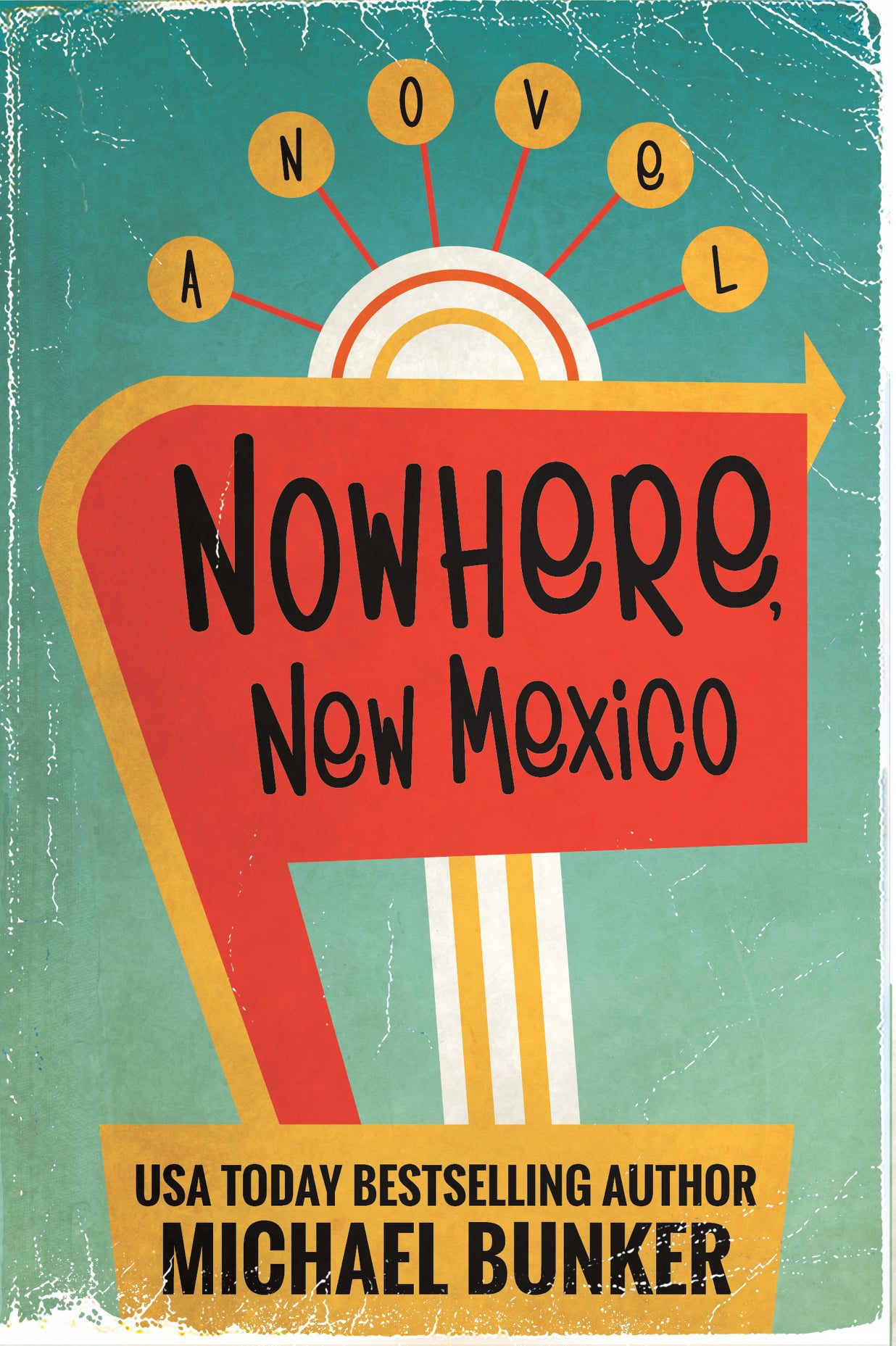
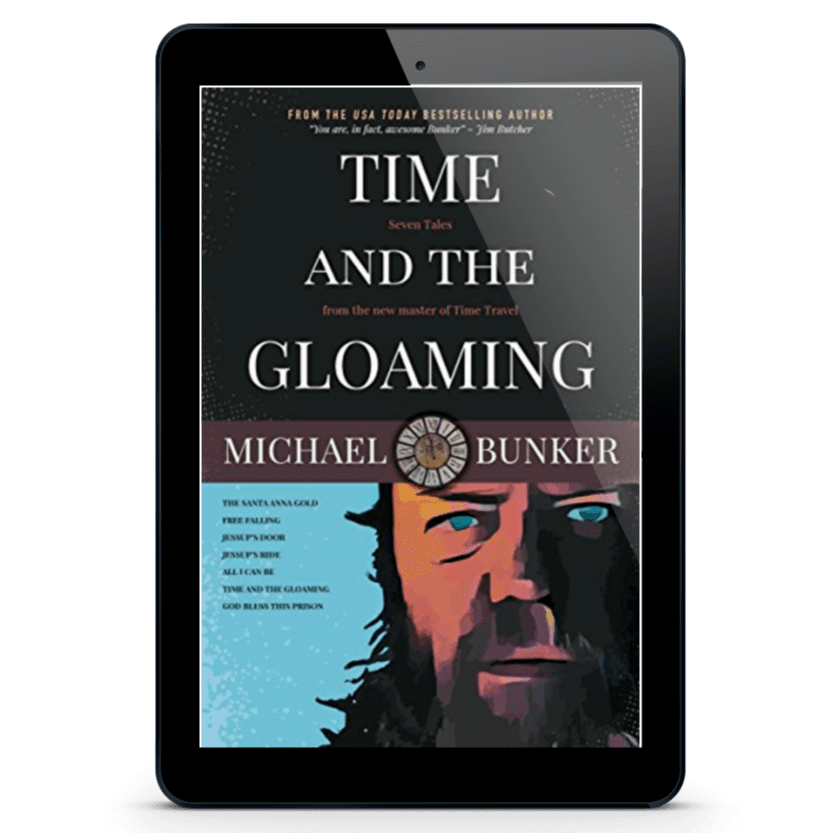
Leave a Reply